Today I’d like to do an in-depth discussion on why so many people want to get back with their exes so badly.
Typically, if you were to chart the “yearning” of an ex for the average person immediately after a breakup it would look something like this,
Now, this is by no means a “perfect graphic” as I’ve seen cases past five months where the yearning is still very high but generally speaking as more time goes on the less you yearn for an ex.
Of course, this is assuming you are engaging in healthy post breakup habits.
My experience has been that most of the individuals I work with DO NOT engage in the correct post breakup habits so even despite the average interesting supposedly waning over time, the odds are stacked against them.
There are really six culprits for this,
- The Role Of Cortisol
- The Brain Addiction Study
- The Anxious Core Wound
- The Idealization Of The Past
- The 8 Stages Of Breakup Grief
- The Habit And Routine Disruption
Let’s dive in!

What Are Your Chances of Getting Your Ex Boyfriend Back?
Take the quiz1) The Role Of Cortisol
Alright, I want to take you through three specific stages or time frames and explain what the neurochemicals are doing in your body during these periods. We will look at the beginning of a relationship, the middle of a relationship, and the end of a relationship.
So, at the beginning of a relationship, the neurochemicals in your body are going to look like this:
Serotonin will be elevated, norepinephrine will be elevated, and cortisol will be slightly elevated, as will oxytocin and vasopressin. This is also known as the honeymoon period, and it is one of the reasons, neurochemically speaking, why it feels so incredible.
Here is what the levels look like in the middle of a relationship:
Essentially, dopamine goes down a little bit, norepinephrine goes down a little bit, serotonin goes down a little bit, cortisol goes down a little bit, and then oxytocin and vasopressin are elevated a little bit.
You are settling into the norm.
Here’s what a breakup looks like:
There’s a sharp increase in cortisol. That means dopamine, norepinephrine, serotonin, oxytocin, and vasopressin go way down, and cortisol shoots up to the max. The reason this is important is that cortisol is also known as the stress hormone.
So, one of the reasons why you may be having such a hard time getting over an ex or why you want your ex back so badly after the breakup is it’s a response to the elevated cortisol levels.
Now, why is this important?

What Are Your Chances of Getting Your Ex Boyfriend Back?
Take the quizI came across an article from Mind, Body, and Soul that quoted a girl by the name of Dr. Jamie Lee, who’s a medical doctor and the founder of a workplace wellness company called Health Quotient. You may have heard of it before. She had something particularly interesting to say about cortisol.
Her argument was that in general, when your cortisol reaches an elevated state in your life, it takes around three to four hours for it to come back to normal. If you go through a gigantic argument with someone or there’s a high-pressure meeting you’re really nervous for, or you’re meeting someone and you have social anxiety, cortisol goes way up, stress goes way up, but then after the event, maybe three to four hours after the event, it should come back down to normal. Yet, if you find yourself in a situation where your cortisol is consistently getting triggered again and again for an extended duration, it can take up to six months for it to come back to normal.
And so, one of the reasons why I think people struggle so badly after a breakup is the fact that not only is a breakup something that will trigger cortisol, but we live in this day and age where there are constant reminders, we’re constantly obsessing about our exes, and this constantly keeps our cortisol in an elevated state.
Think of your ex as sort of like a trigger.
Every time that you think of your ex, anytime a song comes on that reminds you of your ex, or you start thinking of positive or sad memories of your ex, it keeps that cortisol in this elevated state. And so, this is one of the reasons why I think you could want your ex back so badly.
2) The Brain Addiction Study
This might sound a bit strange, but the reality is that researchers, specifically Dr. Lucy Brown, a clinical professor of neurology at the Albert Einstein College of Medicine, present an intriguing argument about breakups triggering withdrawal symptoms.
She conducted multiple different studies and found that individuals in love experience a euphoric state, equating to a natural reward. She draws parallels between the symptoms of heartbreak, such as craving and emotional dependence, and the withdrawal symptoms experienced by drug addicts. Using functional MRI scans, Dr. Brown and her team observed changes in blood flow in the brain when subjects viewed pictures of their ex-romantic partners. These alterations signified increased activity in brain regions linked to romantic emotions.
Essentially, Dr. Brown discovered that going through a breakup can be as challenging as what a drug addict experiences when trying to get clean.
With that in mind, let’s take a look at some drug addiction statistics. I found a website called FamilyAddictionSpecialist.com, which provided interesting insights on how often drug addicts relapse.
The relapse rates for individuals attempting to get clean from drug or alcohol addiction are quite high. Studies indicate that around 40-60% of individuals relapse within 30 days of leaving a drug and alcohol treatment center, and up to 85% relapse within the first year.
Long term, this means 85% of people give in to their withdrawal symptoms.
Bringing this back to heartbreak, one of the reasons you might want your ex back so badly is that you are craving them.
You are literally going through a withdrawal period, and your body knows what it needs to stop the elevated cortisol levels and other intense emotions. You might think, “If I can just get my ex back, everything will be right in the world.” And perhaps for a time, that might feel true.
However, this leads us seamlessly into discussing the next reason why you might be struggling so much with the breakup and why you want your ex back so badly.
3) The Anxious Core Wound
Alright, for those familiar with my work here at Ex Boyfriend Recovery, you know I frequently talk about attachment styles, specifically our clients’ attachment styles.
We’ve conducted polls and found that our average client has an anxious attachment style.
I like to simplify attachment styles for better understanding, boiling them down to their core wounds.
A core wound for an insecure attachment style triggers the negative aspects of that attachment style. For someone with anxiety, this could manifest as desperately begging for the ex back, trying to get the ex back, or even showing up uninvited, displaying somewhat stalker-ish behavior. For an anxious individual, which most of our clients are, the core wound is a fear of abandonment.
And in a breakup, that core wound just became a reality. This helps us understand why people, especially those with anxious attachment styles, act so irrationally after a breakup.
One of the greatest strengths of someone with an anxious attachment style is their problem-solving ability. However, considering what we’ve learned from the brain addiction study and about cortisol, we know that an anxious person’s core wound may lead them to focus on getting their ex back as a solution, instead of potentially moving on.
Moving on could actually have the added benefit of making the ex want them back more or outgrowing the ex. But instead, they determine that their ex is the trigger for their pain, and getting back together is the solution.
This leads them into an anxious death wheel, a vicious cycle of jumping from relationship to relationship, or breaking up and getting back together with the same partner, all while exhibiting the same insecure tendencies.
There are eight main stages to the anxious death wheel.
- It starts with wanting to find someone, followed by finding someone and believing your problems are solved.
- Next, the anxiety kicks in, and you make this person the center of your world, which can turn the partner off.
- Then, you start sensing that your partner is going to leave you, and eventually, they do.
- This is where the brain addiction study and elevated cortisol levels come into play.
- Leading you to believe that getting your ex back is the only way to alleviate your pain.
- If this doesn’t work, you become depressed.
- You wallow in your sorrow and wonder if you’ll ever find someone again.
- This leads you back to the start of the death wheel, perpetuating the cycle.
So, one of the reasons you might want your ex back so badly is that your core wound is dictating your actions. You believe that if you can get your ex back, the pain will stop.

What Are Your Chances of Getting Your Ex Boyfriend Back?
Take the quiz4) The Idealization Of The Past
Some people have a selective memory, tending to remember the good times and forget the bad times, especially as they get further away from the breakup.
This can lead to a romanticized view of the relationship, even when, in reality, it wasn’t so romantic.
Many people hold out hope for change, believing that their ex or the dynamics of the relationship will be different next time.
Referring back to the anxious death wheel discussed in the previous section, each time you start a relationship, whether with the same person or someone new, you hope something will be different.
However, the issue often lies in your core wound being triggered. The idealization of the past is particularly interesting in this context, as it reminds me of the research on the peak-end rule, a concept I frequently discuss on this website.
The peak-end rule suggests that individuals don’t remember the entirety of an experience when recalling memories.
Instead, the brain processes memories by identifying peaks and ends, meaning you’re most likely to remember the most intense moments (both positive and negative) and the final moments of an experience. This is why a strong ending is crucial for movies, as exemplified by Game of Thrones. Despite being a television juggernaut, its reputation suffered due to its widely criticized ending.
From a relationship standpoint, this means that over time, you may start to forget the bad times and remember only the peak moments, leading to an idealized view of the past.
Interestingly, we’ve found that not only anxious individuals fall victim to this, but avoidant individuals do as well. Avoidant individuals tend to keep their walls up, not allowing themselves to think about the breakup until they are certain there’s no chance of reconciliation, enough time has passed, or their ex has moved on. Once they feel safe, they lower their walls and begin to idealize the past.
This is significant because one common behavior we’ve observed in avoidant individuals, many of whom are ex-partners of our clients, is that they reach out months later. This happens when the avoidant has let their guard down and started to idealize the past, which is one of the reasons why you might find it so hard to get over an ex or feel a strong desire to get back together.
5) You Are Still Working Your Way Through The 8 Stages Of Breakup Grief
We’ve all heard of the five stages of grief, but when it comes to breakups, there are actually eight stages of grief. I’ve discussed this in one of my most recent articles. So, here’s the breakdown,
- Desperation: This initial stage is characterized by an overwhelming desire to reconcile with the ex-partner. It’s rooted in the anxious core wound of fear of abandonment. The breakup feels like a manifestation of this abandonment, leading to a desperate need to rectify the situation.
- Pain and Guilt: Here, individuals grapple with the emotional pain of the breakup and guilt over perceived wrongdoings, even if they weren’t at fault.
- Bargaining: At this juncture, individuals believe they can salvage the relationship. They’ve researched, read books, and listened to podcasts, fueling hope that reconciliation is possible.
- Anger: This stage is self-explanatory. Initial attempts at reconciliation might falter, leading to feelings of resentment towards the ex-partner.
- Depression: Drawing parallels with the anxious death loop, individuals feel desolate and question their prospects of ever finding love again.
- Initial Acceptance: After perhaps completing one cycle of the anxious death loop, there’s a fleeting realization that moving on might be the best course of action. However, this acceptance is often temporary.
- Relapse: A setback stage where individuals revert to the belief that they can mend the relationship. This stage is evident in our community, where members oscillate between wanting to move on and desiring reconciliation.
- Actual Acceptance: The final stage, where after multiple relapses and a tumultuous journey, individuals genuinely accept the reality of the situation, whether it’s moving on or reconciling.
The part that’s important here, as we’re trying to understand why you want to get back with your ex so badly and why that’s actually quite normal, revolves around stage seven: relapse.
Essentially, in the eight stages of grief, you find yourself knocked down and having to redo them over and over again, which is the essence of relapse.
You go through the desperation stage, the pain and guilt stage, the bargaining stage, the anger stage, the depression stage, and then the initial acceptance stage. But this initial acceptance is a false peak. It’s like climbing a mountain, reaching what you think is the top, only to realize there’s still double the way to go.
I view initial acceptance as completing one cycle of the anxious death loop.
There’s this realization that moving on might be the best course of action for you, but the acceptance of that is only temporary. Something happens to cause you to relapse, knocking you back down to the beginning, and you find yourself, like Sisyphus, constantly pushing the boulder up the hill.
It’s only after going through relapse a couple of times that you either skip it or identify what’s happening to you, leading to actual acceptance.
My point is, one of the reasons you probably want your ex back so badly is that you are stuck in this relapse loop, caught in the anxious death wheel over and over again. And speaking of going over and over things…

What Are Your Chances of Getting Your Ex Boyfriend Back?
Take the quiz6) Habit and Routine:
Statistically speaking, around 40% of our day is made up of engaging in habitual routines.
When in a relationship, these routines often change to include the other person.
- You might wake up and talk at the same time
- Text throughout the day
- Call each other before bed
- Exchange “I miss yous” and “I love yous.”
You see them regularly.
However, the disruption of this daily routine due to a breakup can sometimes lead to a desire to return to what is familiar.
This is where the concept of the death loop, which I often illustrate with a graphic, becomes interesting. Ultimately, it’s all about returning to the familiar. It starts with someone wanting to find a partner they feel completes them and ends exactly where it began. Ideally, there is personal growth along the way, helping the individual realize that they might want to be in a relationship, but perhaps with someone new.
The problem arises when you have convinced yourself that your ex is “the one.”
You eventually end up back at the start, trying to return to what is familiar. However, this can be exacerbated by dependency. We are talking about an emotional disruption here, but what if there’s also financial dependency?
If you were living with your ex, had lost your job, and they were helping to support you, the breakup could leave you in a precarious position. You might feel pressured to solve the problem by getting back into the relationship.
So, it’s usually all about a return to the familiar. You tell yourself that if you get your ex back, everything will go back to how it was before. But it doesn’t. There’s always a black stain from the breakup, hurt feelings that don’t just disappear.
That doesn’t mean you can’t build something better, but it does mean you shouldn’t operate under the delusion that everything will be perfect like before. Instead, accept that things will be different, and see that as an opportunity to improve rather than just falling back into old routines.
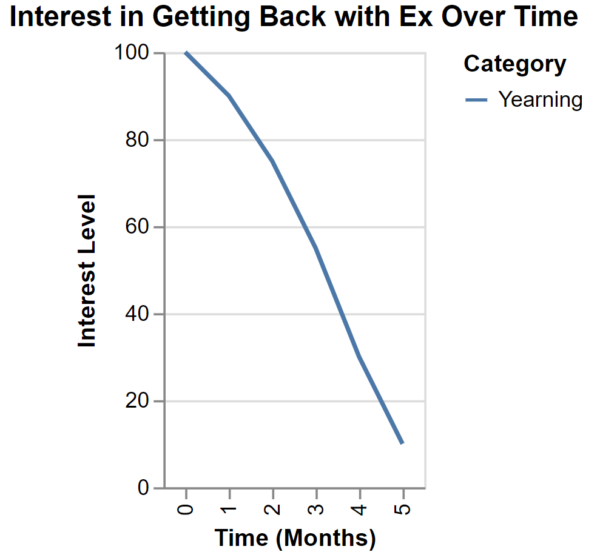
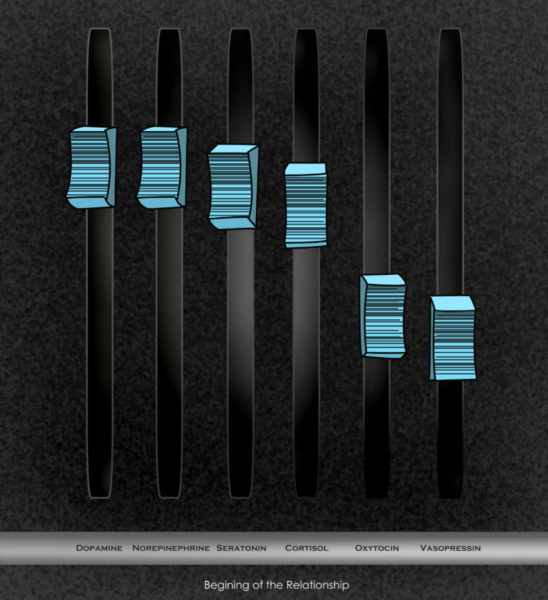
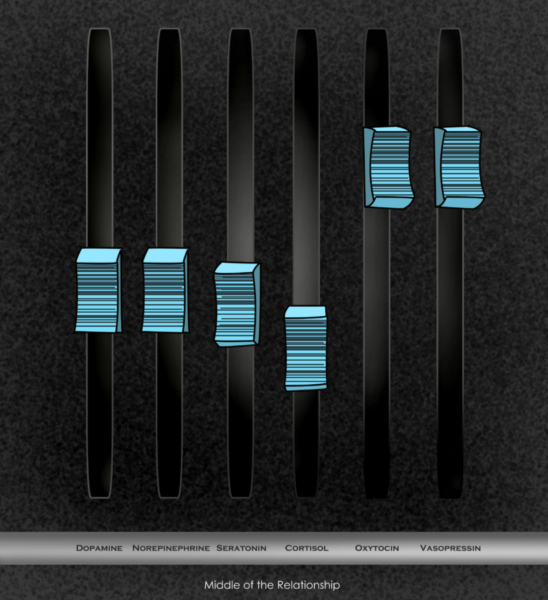
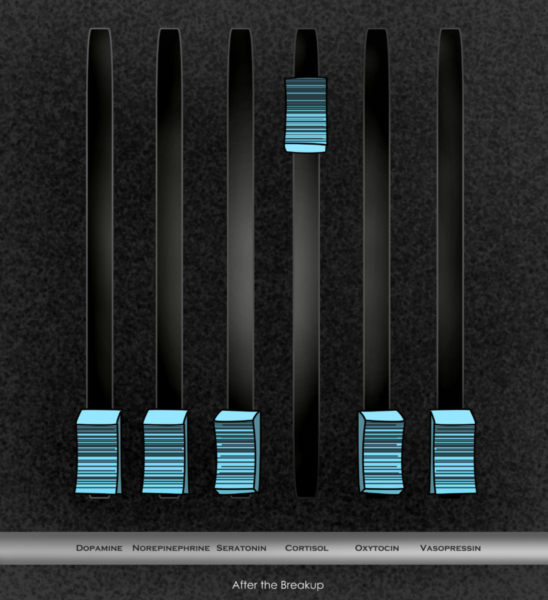
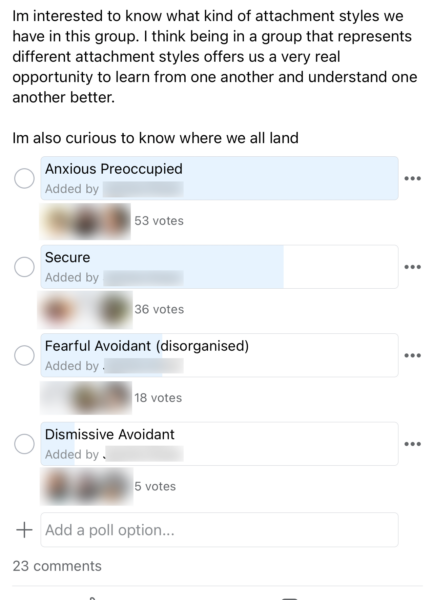
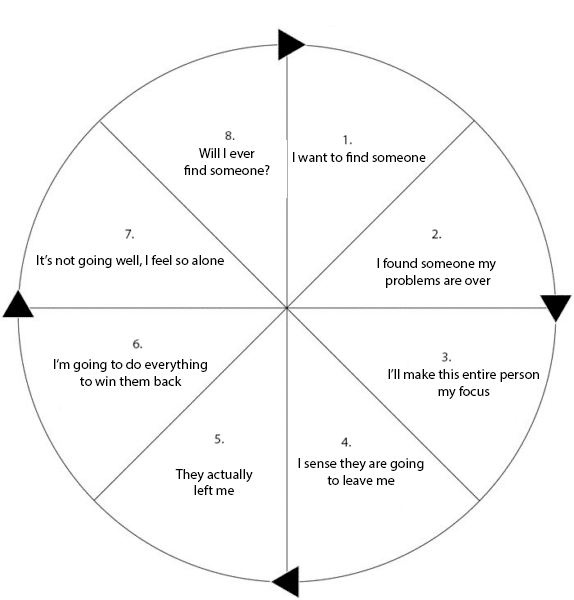
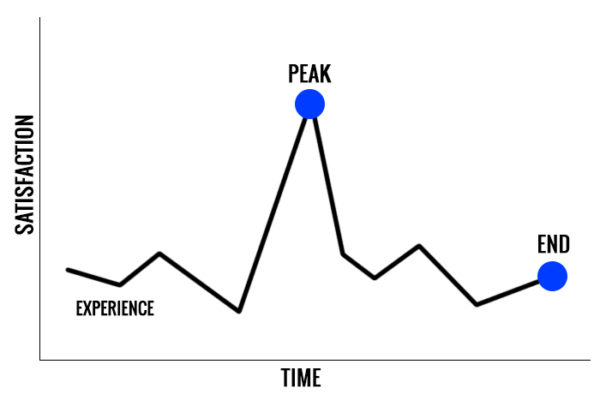
Leanna Mcgee
October 17, 2024 at 8:26 pm
I hope that I find my prince